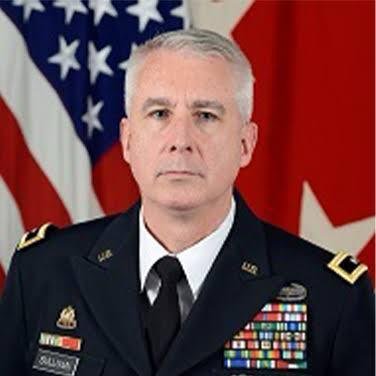In a heartbreaking turn of events, the US military base Camp Liberty in Iraq was targeted in a violent attack on Sunday night, resulting in the deaths of three US soldiers and leaving five others injured. The tragic assault has sent shockwaves through the military community and raised significant concerns about the security of US personnel stationed in the region. This deadly attack marks the latest in a series of escalating incidents targeting US military installations in Iraq.
The loss of three soldiers and the injuries sustained by five others are devastating for the families, friends, and comrades of the fallen. The identities of those killed and injured have not yet been officially released, but the grief surrounding the incident is palpable. The attack underscores the real dangers that US forces face while serving in conflict zones like Iraq, where threats to their safety are a constant concern.
This assault on Camp Liberty is part of a disturbing trend of increased attacks on US military bases in Iraq. In recent months, several key installations have been targeted by hostile forces, including the infamous Al-Asad Air Base. Many of these attacks are believed to be carried out by Iranian-backed militias, a growing threat in the region. The frequency and intensity of these assaults have only heightened the sense of insecurity surrounding US operations in Iraq.
In the aftermath of the attack, General John P. Sullivan, the commanding general of US forces in Iraq, expressed his deep sorrow and condemned the assault. He vowed to conduct a thorough investigation to determine the perpetrators and their motivations. General Sullivan emphasized the US military’s commitment to protecting its personnel and preventing such attacks in the future. “The loss of our service members is a tragedy, and we will do everything in our power to bring those responsible to justice,” he stated.
Experts speculate that the surge in attacks on US bases, including the one at Camp Liberty, may be linked to escalating tensions between the US and Iran-backed militias in the region. These militias have become increasingly aggressive in recent years, targeting US interests in Iraq as a means of exerting influence and demonstrating resistance to US military presence. As the US and Iran continue to face off diplomatically, these militia groups have become a major player in the ongoing conflict.
The US military is working diligently to gather intelligence and uncover the identity of those responsible for the attack on Camp Liberty. As of now, the details regarding the specific group behind the assault remain unclear. Military officials have assured the public that they are investigating all leads and will take swift action against anyone found to be involved in the attack. However, given the complexity of the situation and the volatile nature of the region, the investigation is likely to take time.
The attack at Camp Liberty is a stark reminder of the risks that US personnel face daily while deployed in hostile regions like Iraq. For many soldiers, the threat of violence is a constant presence, and attacks like this force the military to reassess security measures and protocols. The safety of US personnel remains a top priority, and there will likely be increased efforts to fortify military installations and improve intelligence capabilities moving forward.
The attack on Camp Liberty also highlights the human cost of war, not only for the soldiers who serve but also for their families and loved ones back home. The emotional toll of losing comrades in battle is immense, and the families of those killed in the attack will bear the brunt of this tragedy. Military families are often asked to bear the unimaginable, and the grief experienced by those who lose their loved ones is profound.
The attack on Camp Liberty comes at a time of heightened diplomatic tensions between the US and Iran. Relations between the two countries have been fraught with conflict for years, particularly since the US withdrew from the Iran nuclear deal. In recent months, there has been an increase in rhetoric and actions from both sides, with Iran-backed militias in Iraq serving as a proxy force for Iranian interests. This backdrop of political instability only serves to escalate the risks for US personnel in the region.
The US is increasingly being drawn into proxy conflicts with various militias and insurgent groups in Iraq, many of which are backed by Iran. These proxy wars make it difficult for the US military to fully control its operations in the region and place its personnel in constant jeopardy. As militias with close ties to Iran continue to target US forces, the threat of future attacks remains high. The situation in Iraq is far from stable, and US personnel will need to remain vigilant.
In the aftermath of this attack, the US faces a critical decision regarding its military presence in Iraq. While officials have committed to continuing operations in the region, this tragedy serves as a reminder of the challenges the US military faces in maintaining its presence in a volatile environment. Going forward, the US will need to carefully evaluate its strategy in Iraq carefully and consider how to safeguard its personnel while navigating the complex geopolitical dynamics at play.
As the investigation into the Camp Liberty attack continues, US officials are focused on ensuring the safety and security of their personnel. The tragic loss of life serves as a reminder of the sacrifices made by service members, but it also underscores the persistent dangers that come with military deployments in hostile territories. While the road ahead is uncertain, the US military remains committed to protecting its forces and maintaining a strong presence in Iraq to address the broader regional threats. The hearts of the American people go out to the families of those affected by this tragic event, and their bravery will not be forgotten.
